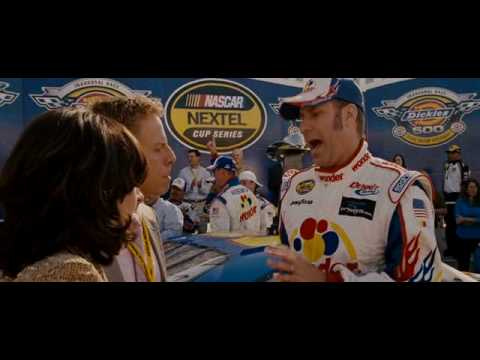The Rage of the Corporate Lawyer
American Bar Association Antitrust Section lawyers run a lot of antitrust policy. And they are extremely mad at Lina Khan and Jonathan Kanter.
Welcome to BIG, a newsletter on the politics of monopoly power. If you’re already signed up, great! If you’d like to sign up and receive issues over email, you can do so here.
I’ve had a tough time writing this week, because I’m trying to figure out how to describe a somewhat bitter public fight that I had on Wednesday with some of the top antitrust lawyers in America, on a panel at the biggest annual conference on antitrust. I was angry after the panel, and I needed a few days to calm down.
The audience was 300-500 antitrust lawyers, many quite hostile. Collectively these are the people who give advice to the most powerful firms in America on what they can do without violating the laws that prohibit monopolies.
So today I’m writing about the American Bar Association Antitrust Section. I’ll try to be nice, because I believe the people I debated were sincere, and they were equally angry, at us. They represent, for lack of a better word, a shadow governing apparatus of corporate power. And their views matter.
This Is How We Do Things
America has always loved and hated lawyers. The country was founded by lawyers, but there is no mandate in the Constitution that occupants of the Supreme Court must be trained in the law. “In America there are no nobles or literary men, and the people are apt to mistrust the wealthy,” wrote Alexis de Tocqueville in the 1830s. “Lawyers consequently form the highest political class and the most cultivated portion of society.”
Tocqueville was not offering a compliment. “If I were asked where I place the American aristocracy,” he wrote, “I should reply without hesitation that it is not among the rich, who are united by no common tie, but that it occupies the judicial bench and the bar.” American lawyers, he argued, are hostile to change and innovation, adding a “conservative interest to their natural taste for public order.”
A hundred years later, the New Dealers confronted just this dynamic in their attempt to address an economic crisis. The cautious old judiciary, as well as the big business-friendly (and segregated) American Bar Association, stood in their way. (The New Dealers ultimately won, and took over the institutions of law.)
FDR’s right-hand legal advisor, Robert Jackson, who later became a Supreme Court justice, never thought much of big city corporate lawyers, or the bar. “What is happening,” he asked in 1932, “to that class of lawyers to whom Woodrow Wilson referred as a "dwindling body of general practitioners who used to be our statesmen?"‘ Yet Jackson loved the law itself. Louis Brandeis felt the same way.
This critique of lawyers is borne out of a frustrated love for the profession. The public depends on private lawyers who offer not just loyalty to clients, but also a zeal for justice. Lawyers make money advising clients, but they are at the same time officers of the court, and should uphold the public interest.
We face the same dilemma today that our forebears did. The American system of law still depends on lawyers, with antitrust as a specialty depending on the antitrust bar. Today, every time an important antitrust court decision comes out or a statute passes, thousands of corporate lawyers send alerts to their clients, helping them determine what kind of behavior is and isn’t legal. For instance, when the FTC put out a proposed rule on non-compete agreements, law firms blasted out newsletters to help their clients comply. Many are complying, removing non-competes from their employment agreements.
Before a merger, a CEO has an antitrust lawyer in the room, telling him whether he can go through with it. When confronted with a possible pricing change or business strategy, an antitrust lawyer will often hold a veto pen. These legal advisors are paid by corporations, but they are also officers of the court, charged with helping their clients obey the law. Every corporation, in effect, has an in-house judge, helping keep them on the straight and narrow.
The upside of this system is that it is efficient and flexible, and allows legal changes to be transmitted quickly throughout society. But there is a risk, which is insularity. If a small group of lawyers manages to gain control of the levers of enforcement or the judiciary, then they become a power center in and of themselves, no longer just explaining the law, but shaping it as well. And if corporate lawyers become, as Jackson and Brandeis feared they were, too specialized, and too beholden to big business clients, then they stop seeing the bigger picture, and lose, as Jackson noted, their “respect for the law and the courts.” (That is what has happened. Powerful law firms put in their marketing documents their ability to help clients violate the law.) It is this balance upon which a well-functioning society depends.
Today, extreme levels of consolidation in the corporate world reflect in the American Bar Association Antitrust Section, which has historically been the central group of lawyers that control the conventional wisdom in antitrust. For instance, Robert Bork systemically used the Antitrust section to climb the social rungs of the legal world in the 1960s, when the Section was controlled by well-mannered liberals who had done the work of the New Deal. In the 1980s, when the Reagan administration killed antitrust, the bar shrank dramatically. Today the ABA Antitrust Section is mostly the defense bar, the lawyers who defend big business, and not so much, as it should be, lawyers who both defend monopolists and bring cases against them.
Keep reading with a 7-day free trial
Subscribe to BIG by Matt Stoller to keep reading this post and get 7 days of free access to the full post archives.

